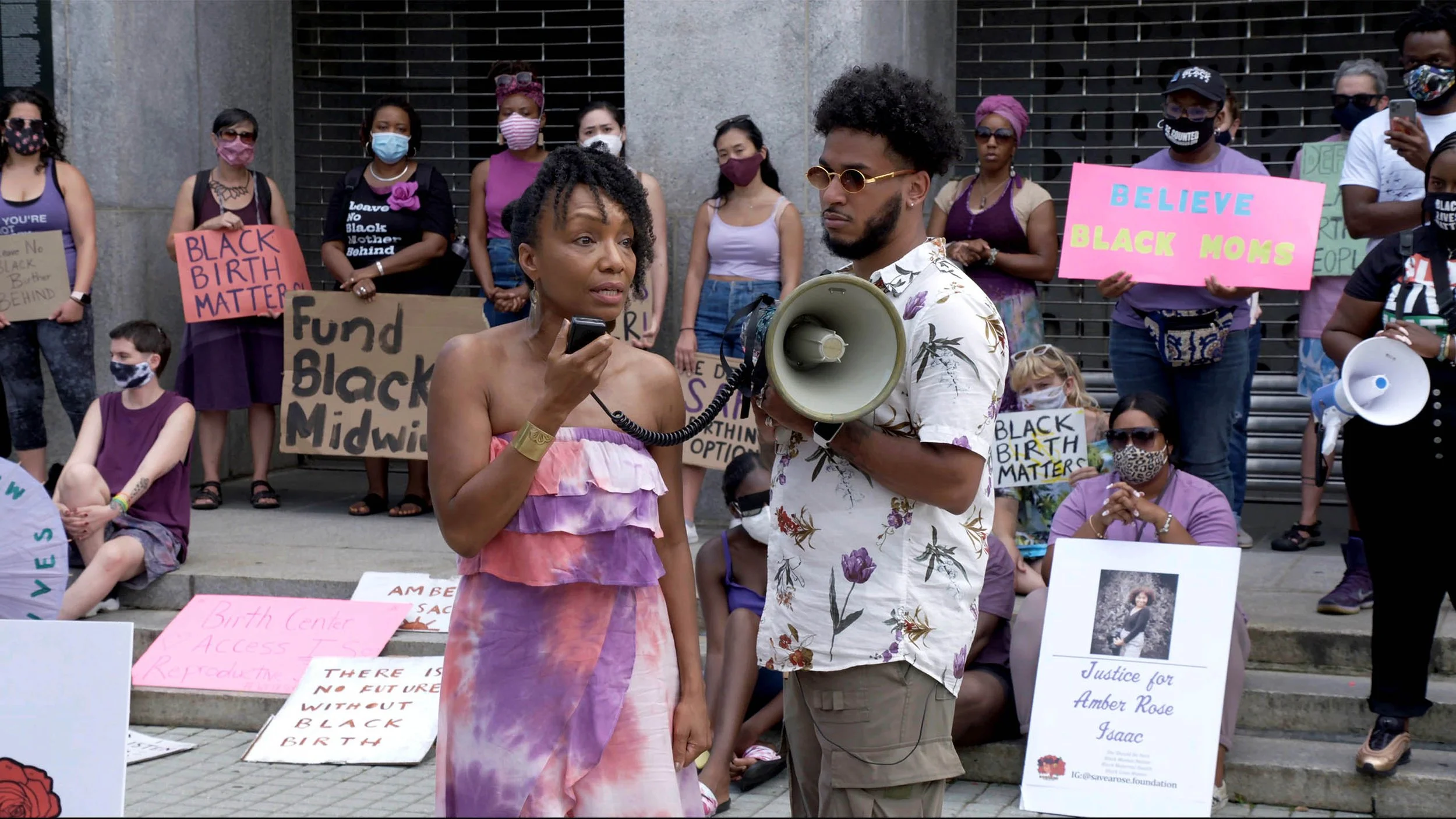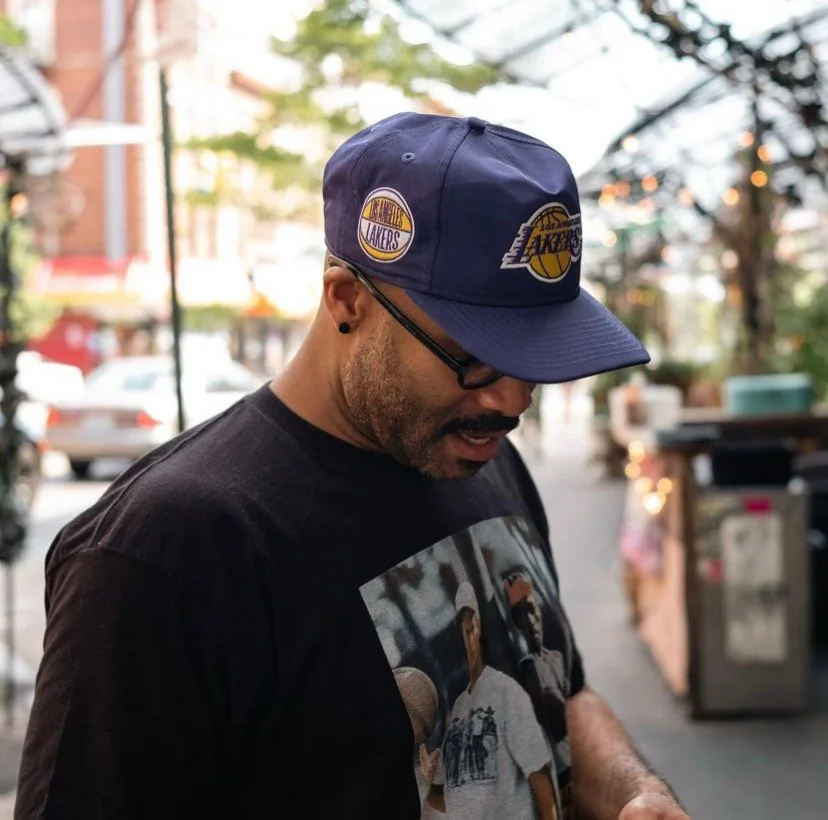Aftershock: What Happens When Black Mothers Die
I’ve read a ton of articles about the Black maternal health crisis, and frankly, I’m tired. I’ve watched The Business of Being Born and read that piece Serena wrote after she nearly died giving birth to her daughter. I even wrote a few of those think pieces and op-eds that caused the topic to hit a fever pitch in 2017. So, when I was asked to watch Aftershock, a documentary about the Black maternal health crisis, I felt somewhat prepared for what I was about to watch. I expected to get a rundown of devastating statistics like how the US has the worst maternal mortality rate among developed countries. I expected to hear about how important it is to educate ourselves on our patient rights when we enter the hospital system. I expected to walk away from this film informed, motivated and angry. What I didn’t expect was to feel loved.
This isn’t just another film about Black folks dying, it's about all the amazing ways we love each other and heal together. I also didn’t expect to see familiar faces, neighbors and people I’ve run into at school events for my son. The film, though rooted in my community of Bed Stuy, Brooklyn, shines a light on a national crisis that is not just killing Black women, but also robbing Black communities of our future matriarchs.
The documentary chronicles two families as they try to piece back together a life that had other plans. The film centers on the stories of Shomony Gibson and Amber Rose Isaac, who each passed away weeks after giving birth. We meet their families; Shamony’s partner Omari, her mother Shawnee, and Amber Rose’s partner, Bruce McIntyre III, all of whom lept into activism and community organizing in the wake of tragedy.
The film’s co-directors Paula Eiselt and Tonya Lewis Lee attempt to provide faces to the commonly recited data we’ve all heard so much about. Tonya, the wife of director Spike Lee, is herself the mother of two children and all too familiar with the statistics. As a spokesperson for infant mortality, Tonya’s understanding of the crisis deepened through her travels. “I found myself immersed in a world of women's health and had the opportunity to talk to lots of Black women across the country”, Tonya told CRWNMAG. “Inevitably, in those conversations, someone would mention they had a friend, a sister, a cousin, somebody who had passed away from childbirth complications.”
Paula, also a mother, was inspired to shine a light on the maternal health crisis after the media around the subject caught fire in 2017. “I am a mom of four and I've had my own experiences with our very broken maternal health system. But, I realized that what I experienced on an individual level was affecting Black women at much higher rates. So I wanted to work with a Black woman who had a perspective that I can never have.”
The film, which debuted at Sundance and received the Special Jury Award: Impact for Change, focuses its lens on the stories behind the statistic; the incredible loss, the questions left unanswered, the work of raising a newborn without their mother, the ways in which Black men grieve and heal, the anger of a mother who intended to grow old with her daughter. These things do not have quantifiable metrics.
“When a Black mother dies, it is an earthquake,” said Shawnee as she eulogized Shamony in the film. In the wake of her daughter’s passing, Shawnee, a reproductive justice advocate, described the loss of Black mothers as an aftershock — a lasting disruption to family and community. A wound that never heals.
““When a Black mother dies, it is an earthquake.””
Aftershock is a testament to what happens when awareness spreads and women feel empowered to make choices. One of the documentary subjects, Felicia Ellis, was planning to give birth in her hometown of Tulsa, Oklahoma, a city with the worst Black maternal morbidity rate in the country. “When we initially met her, she thought she was going to give birth in a hospital with a doctor,” said Tonya, “And, over the course of filming with her, she decided to explore other options. It was hearing about Amber's story that made her go and look for other options.”
The hope of the film is to inspire lawmakers, activists and change-makers into action, but also to remind every Black woman that she is not alone and that there is a lineage of support in our history and in our communities. Nothing is insurmountable when we are informed and united. “We want women to feel empowered by the options that they have around birth,” said Paula, “There is choice.” When I asked Tonya and Paula if they thought a film like Aftershock might scare women out of wanting to give birth, Tonya shook her head, “The last thing we want is people to come away from this film, being afraid to give birth. I want all those Black and brown babies as much as possible. I want people out there having babies and having wonderful births so that once those babies are here, they are able to really be the parents that they want to be.”
Aftershock, an original documentary from Onyx Collective and ABC News, premieres July 19th on Hulu.



